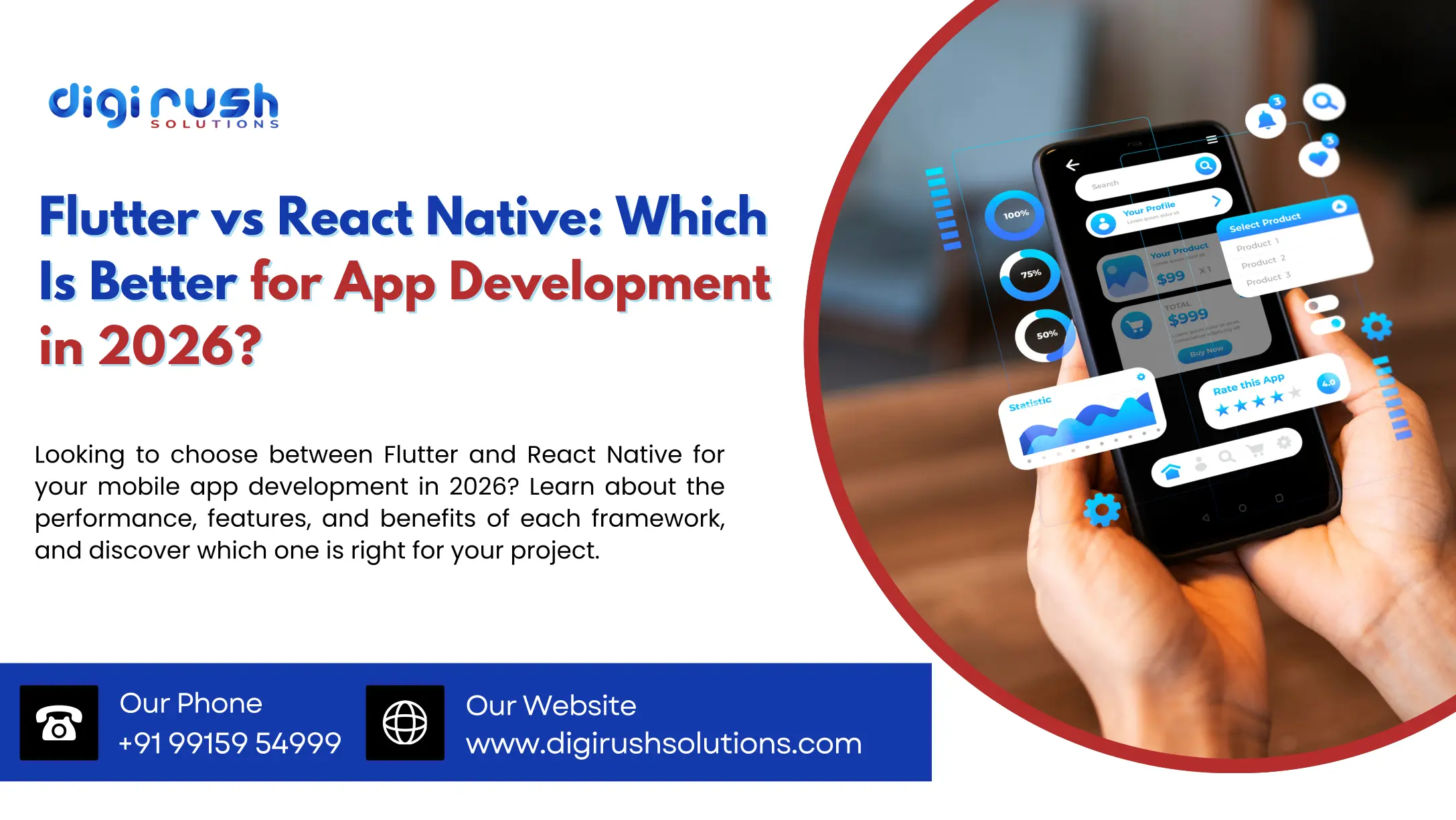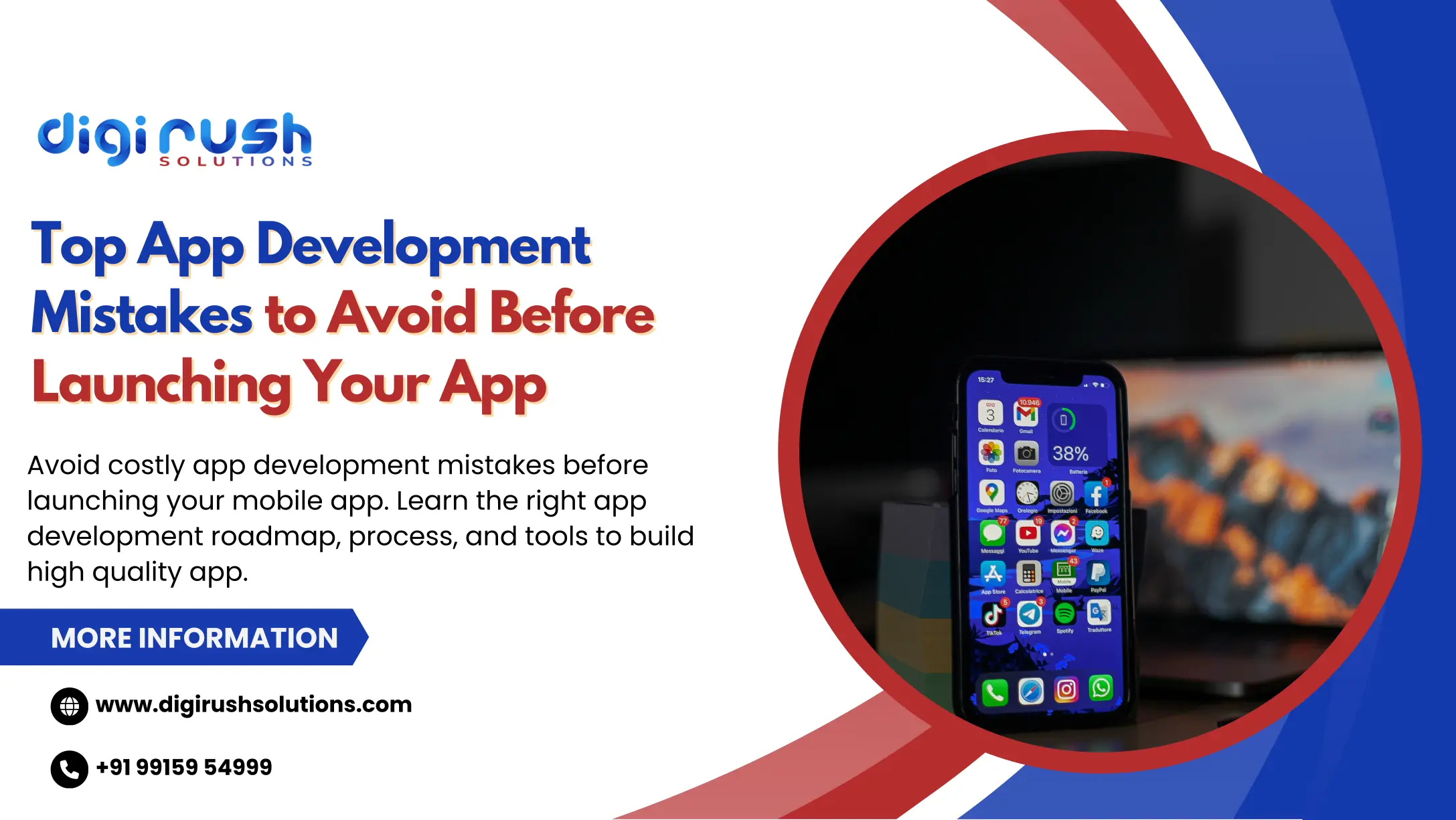
Mobile app development has come a long way in recent years, especially with the rise of cross-platform frameworks like Flutter and React Native. Both of these tools have their own set of advantages, and choosing the right one can be a challenge.
As we look ahead to 2026, it's crucial to weigh up the differences between Flutter vs React Native for mobile app development to see which one suits your project best.
What Is Flutter?
Flutter, created by Google, is a powerful UI toolkit that enables developers to build natively compiled applications for mobile, web, and desktop with a single codebase.
It uses the Dart programming language and provides a rich set of customizable widgets, making it an excellent choice for developers who want complete control over their app's appearance.
It's known for delivering apps with outstanding performance and a high-quality user experience, and it's quickly gaining traction among businesses.
What Is React Native?
React Native is a framework created by Facebook that allows you to build mobile apps using JavaScript and React. With React Native, developers can create cross-platform applications for both iOS and Android while sharing a significant portion of the codebase.
It leverages native components, so the app feels truly native on both platforms. React Native is incredibly popular, and its widespread use is a testament to its reliability and versatility.
Comparing Flutter vs React Native: What Matters Most?
1. Programming Language
The first difference between these two frameworks lies in their programming languages. Flutter uses Dart, which is not as widely known as JavaScript. While Dart offers some performance benefits, especially for creating smooth animations and rendering complex UI elements, it's less familiar to many developers.
React Native, however, uses JavaScript, one of the most widely used programming languages. This makes it a more accessible choice for many developers, especially those who are already familiar with JavaScript.
If your team is well-versed in JavaScript, React Native may be a quicker and easier option to get started with, while Flutter's Dart might require a learning curve for those unfamiliar with it.
2. Performance: Which Is Faster?
Performance is a key factor in mobile app development. Flutter often has the edge when it comes to raw performance. It compiles directly to native code, which means that apps built with Flutter tend to run faster, especially when it comes to complex animations and transitions.
React Native, on the other hand, relies on a bridge to communicate between JavaScript and native code, which can sometimes cause performance issues, particularly for apps that require heavy animations or intricate user interactions. However, React Native has improved over time, and with optimizations like the Hermes engine, it offers solid performance for most apps.
In the Flutter vs React Native performance debate, Flutter has a slight edge, especially for more demanding app features.
3. Speed of Development
Both frameworks are known for their ability to speed up the development process, thanks to features like hot reload. Hot reload allows developers to make changes to the code and instantly see the results, saving time during development.
Flutter's hot reload feature is known for being quick and reliable, which makes it an excellent choice for fast-paced development and frequent updates. React Native also offers hot reload, but it can sometimes experience delays, especially when dealing with more complex updates.
If rapid development is a priority, Flutter vs React Native for mobile app development leans toward Flutter for its faster development cycles, but React Native still provides a highly efficient environment.
4. User Interface and Customization
When it comes to UI design, Flutter excels with its widget-based system. It gives developers complete control over every element of the app, allowing for highly customized designs and pixel-perfect UIs. Since Flutter doesn't rely on native components, it can deliver a consistent look across platforms without needing separate design tweaks for iOS and Android.
React Native, in contrast, uses native components for building UI elements, which can make the app feel more "native" on each platform. However, achieving a consistent UI across platforms may require more work and custom components. If your goal is a unique, tailored design, Flutter may be the better choice.
5. Community and Ecosystem
React Native has been around longer and has a well-established community. This means there's a wealth of resources, libraries, and third-party tools available, which can help developers save time and solve problems quickly.
Flutter, while newer, has seen rapid growth and adoption, particularly since Google backs it. Although its ecosystem isn't as mature as React Native's, Flutter is steadily catching up and has a growing community of developers and resources.
For those looking for a robust ecosystem with plenty of support, React Native's larger community makes it a go-to option. However, Flutter's ecosystem is expanding rapidly and should not be overlooked.
6. Popularity and Adoption
React Native has been adopted by major companies like Facebook, Instagram, and Airbnb, which gives it a strong reputation in the development community. Its long track record in the industry makes it a reliable choice for businesses.
Flutter is gaining momentum and is already being used by companies like Google Ads, Alibaba, and Reflectly. As more businesses seek high-performance, customizable apps, Flutter is likely to become even more popular in the coming years.
Whether you're looking for Android app development or iOS app development services, both frameworks are widely used, but React Native has the upper hand in terms of established adoption. Still, Flutter's popularity is growing, especially for high-performance applications.
7. Cost and Developer Availability
Both frameworks enable you to develop apps for both Android and iOS with a single codebase, significantly reducing development costs. However, React Native has the advantage of a larger developer pool. JavaScript's widespread use means it's easier to find developers who can work with React Native.
On the other hand, while the pool of Flutter developers is smaller due to Dart's niche status, the demand for Flutter expertise is increasing, especially for projects requiring custom mobile app development with excellent performance.
Geofencing Marketing and Mobile App Development
As mobile app development evolves, Geofencing Marketing is becoming more popular, allowing businesses to target users based on their location with customized notifications and offers.
Both Flutter and React Native can support geofencing features, though Flutter's enhanced performance and flexibility make it an excellent option for apps with location-based features.
Flutter vs React Native in 2026: What's Next?
As we look toward Flutter vs React Native 2026, both frameworks will continue to evolve. React Native's maturity and large community will keep it relevant for rapid development.
At the same time, Flutter's native performance and growing ecosystem will make it increasingly attractive for apps requiring complex features and custom designs.
If you're looking to develop a custom mobile app or plan to integrate advanced features like geofencing or AR, Flutter might be the ideal choice. However, for faster development cycles and more widespread support, React Native remains a strong contender.
Conclusion
Both Flutter and React Native have substantial advantages, and the choice ultimately depends on your project's specific needs.
Whether you're looking to build a high-performance app with stunning visuals or a reliable app with a vast community backing, both frameworks are excellent options.
As mobile app development continues to evolve, Flutter vs React Native will remain an essential discussion in the tech community.
For businesses considering mobile app development, both frameworks provide compelling solutions for Android app development and iOS app development services.
If you want a solution that's both flexible and fast, React Native may be the choice for you. But if you're looking for cutting-edge performance and design, Flutter may be the way forward for 2026 and beyond.
Recent Blog











